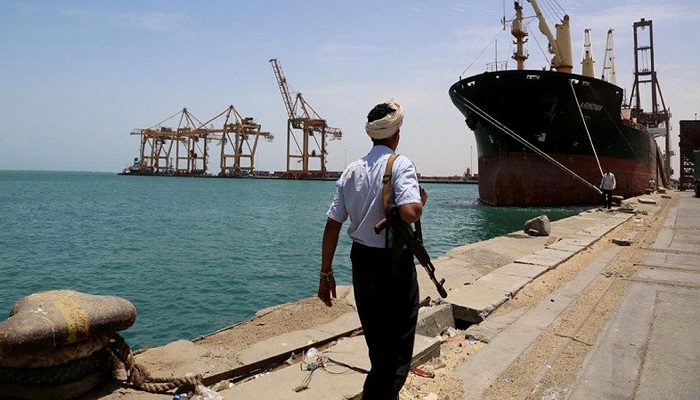As Saudi-Led Attack on Hodeidah Escalates, Yemeni Tribes Bolster Resistance
A.A
HODEIDAH, YEMEN — The attack on Hodeidah — Yemen’s fourth largest city and predominant port on the Red Sea, responsible for providing over 70 percent of Yemenis’ food, aid and medicine — has gained speed this week as the U.S.-Saudi-led coalition rejected an initiative from the United Nations envoy to Yemen, Martin Griffiths, aimed at ending the fighting in the port city and surrounding area.
Griffiths had presented a plan on June 3, during his visit to Sana’a, in an effort to stop the fighting along Yemen’s West Coast, but the plan was rejected by the Saudi-led coalition despite having been supported by the Houthi rebels. “We have accepted that the United Nations have a technical and logistic role in the port of Hodeidah but the enemies have refused to do so,” stated Houthi leader Abdulmalik al-Houthi during a televised speech on Friday marking the anniversary of Al-Sarkha (“the slogan”) — the day of Houthis’ declaration of opposition to U.S. policies in the Middle East in 2002. “The enemies’ excuses were cut off by our initiative,” he added.
Earlier this month on July 4, Martin Griffiths said that he had held talks with al-Houthi. During a press conference that same day, Griffiths stated “I’m greatly reassured by the messages I have received [from the Houthis], which have been positive and constructive.”
The Saudi-led coalition, however, rejected Griffiths’ efforts. The coalition, which has been waging a war against Yemen since early 2015, claims that the Houthis are using Hodeidah for weapons deliveries, an allegation rejected by Hodeidah`s local residents and the Houthis.
However, the Hodeidah port is the lifeline for the majority of Yemen’s population, which is why Saudi Arabia has make it into a target, attacking the Yemenis’ lifeline to survival. An attack against it threatens over 70 percent of the population, who are in need of relief aid like food, fuel and medicine owing to Saudi Arabia’s ongoing war against the poorest country in the Middle East.
As a result of the coalition’s rejection of the UN-backed initiative, the Houthis as well as Hodeidah`s local residents have threatened to turn Hodeidah into a graveyard of Saudi and UAE troops and their mercenaries, who are engaging in a genocidal war against Yemen that has left over 10,000 civilians dead and nearly a million injured, and who are using the blockade of humanitarian aid as a weapon of war.
The Saudi-led blockade of Hodeidah port over the last two years — which has prevented medical supplies, food and humanitarian aid from reaching Yemen — has created one of the worst humanitarian disasters of the modern era. Due to the blockade and the the Saudi-led coalition’s bombing campaign in the region, the UN estimates that over 18 million Yemenis may die of hunger by the end of 2018.
On Friday, addressing his supporters via a televised speech broadcast from the Yemeni capital city of Sana’a, al-Houthi said:
The aggressors are expending all their efforts to overrun the western coastal province of Hodeidah, but are confronted with strong popular resistance. They have dismally failed in their attacks. We will recruit more fighters to turn Hodeidah into a graveyard of enemies.”

